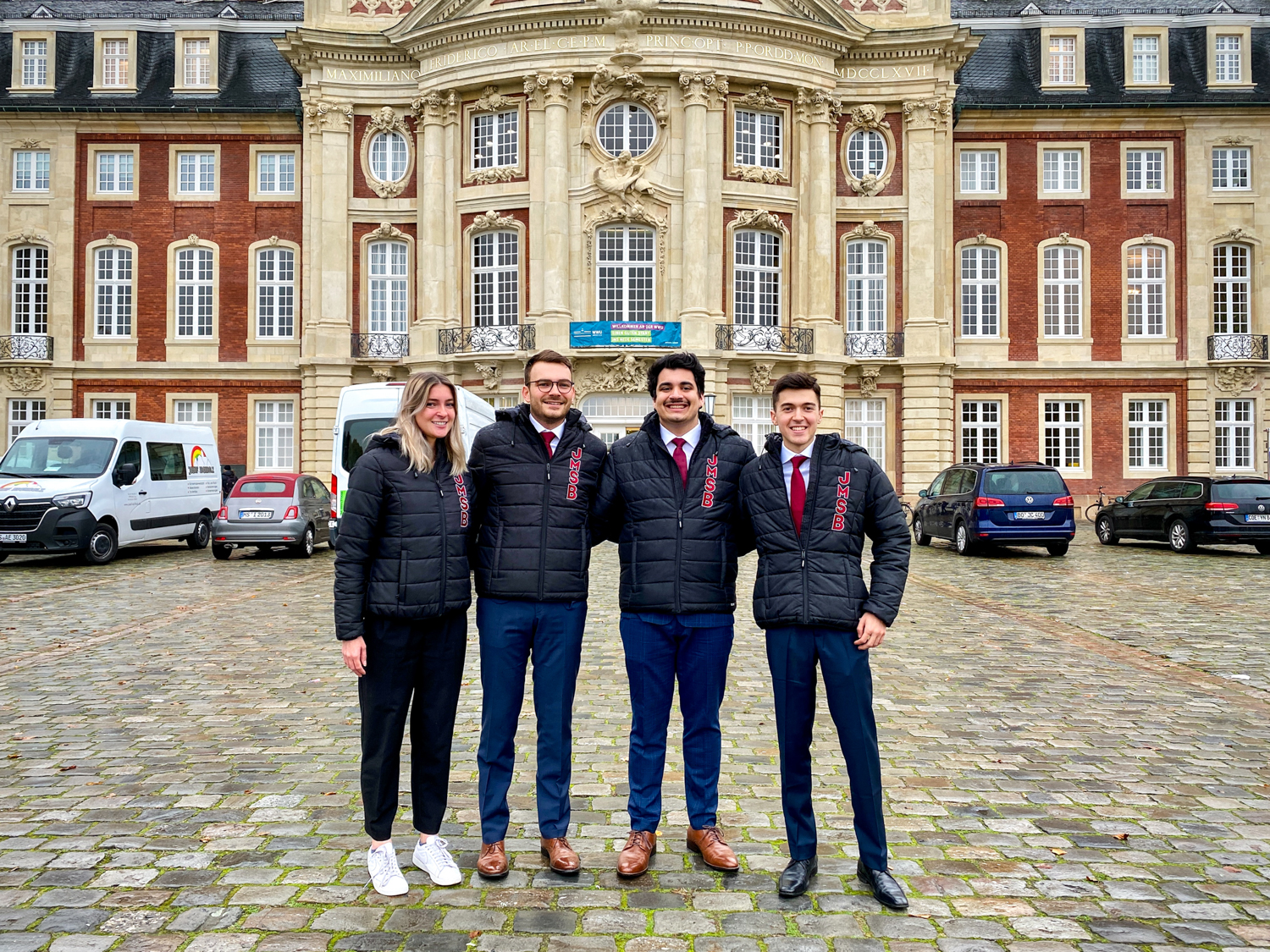JMoSB comes to an end with over $28,000 raised
For JMoSB’s Movember fundraiser, all its members chose their own way to raise money and spread awareness for men’s health, particularly mental health.
Some members of the John Molson School of Business Movember team, a subsidiary of CASA Cares, sold pins, some found sponsors and prizes for raffles and competitions, and others did push-ups. But they all had the same goal: raising funds for the John Molson School of Business Movember fundraiser.
Sally Vu, the co-director of external relations for JMoSB, is majoring in Human Resource Management. Her mental health awareness project consisted of sharing video journals of 22 different men, each talking about their experience with and opinion on men’s mental health.
Jason Lobasso, a third-year finance student at JMSB, contributed to Vu’s video journals. He said that men’s mental health should be a subject that’s more talked about.
“I think it’s great that we, as a society, are collectively engaging in conversation about it more and more as time passes,” he said. “No one should ever be ashamed to open up and speak up on what’s on their minds. We should be prioritizing dialogue as much as we can.”
Vu received many donations with the help of her campaign, but since she wanted to do more, she decided to collaborate with Mary Colombo, the owner of a small Montreal-based online business, @artxfeels. Colombo sells customized accessories through her Instagram account. She graduated from Concordia in 2018 and has previously participated in another fundraising initiative.
“A couple months ago, I decided I wanted to raise money for the MUHC [McGill University Health Centre] foundation,” Colombo said. “So, I designed Ça va bien aller pins, and 100 per cent of the profits went to the foundation.”
Colombo said that when Vu asked her to collaborate, she was more than happy. She made mustache pins and sold each pin for $5, with all profits going to the fundraiser.
Karim Hatem, co-director of external relations, is in charge of media presence, as well as finding sponsors to provide prizes related to mental health care or self-care in general, including spa packages from Bota Bota. Hatem is in his second year at JMSB, doing a double major in Marketing and Human Resource Management. He will be posting a video of him doing push-ups, depending on how much money he raises.
“If I raise $100, then I’ll do 100 push-ups,” he said.
Neil Kafidi, vice president (VP) of external for JMoSB, is majoring in International Business with a minor in Finance. His role also consists of finding sponsors and prizes for different competitions and raffles, similar to Hatem’s role. To do that, Kafidi gets in touch with companies and asks them for monetary or material donations, which would be used for the raffles.
He received a $1,000 donation from Imperial Tobacco, and many products from Pharmaprix, including a laptop, a tablet, and a camera.
Most members joined the Movember team because they wanted to help raise awareness and funds for an important cause, but they also have more personal reasons for why they decided to apply.
“It’s a bit more personal for me,” Hatem said. “A friend of mine has mental health issues, so I wanted to help raise awareness, and that’s why I joined and decided to focus more on the mental health aspect of Movember,” he added, referring to the self-care prizes he acquired for the competitions.
For Kafidi, joining JMoSB was just about giving back.
“I feel like when you’re lucky enough to be in a good situation and when you can help, it’s always important to help because not everyone has the same luck,” he said. “And I believe in good karma too. If you do something good, then something good is always going to come back to you.”
He also explained that he initially applied for the VP internal position, which consists of communicating with the team and organizing their meetings. However, he was offered the VP external position, which allowed him to talk to more people, including possible sponsors. He said he was happy to take on a more challenging position.
“I got to discover a new way to get out of my comfort zone,” Kafidi concluded.
“For me, the most important part is mental health,” Vu said. “The more I reached out to people during the pandemic, the more I realized we’re going through a lot, everyone individually. That’s why I wanted to do this campaign, to share everyone’s stories.”
Colombo loved Vu’s idea of sharing testimonies of men.
“I feel like I’ve never seen that being done,” she said. “And I think that in regards to men’s health, it’s something that’s often overlooked, and because of that, I feel like they were extremely strong for talking about it on social media.”
All the members learned something different from their experience fundraising for men’s mental health.
“I learned a lot about myself, about the cause and about how people really feel,” Vu concluded. “It’s a great initiative and I plan on reapplying next year.”
“I think I’d like to participate next year too, but maybe have another position, to see things from a different angle and learn new things,” Hatem concluded.
Logo courtesy of John Molson School of Business Movember team
